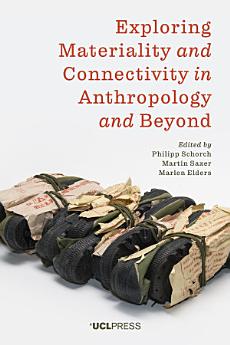Exploring Materiality and Connectivity in Anthropology and Beyond
About this ebook
Throughout the four-year research process that led to this book, the authors approached this question not just from a theoretical perspective; taking the suggestion of 'thinking through things' literally and methodologically seriously, the first two workshops were dedicated to practical, hands-on exercises working with things. From these workshops a series of installations emerged, straddling the boundaries of art and academia. These installations served as artistic-academic interventions during the final symposium and are featured alongside the other academic contributions to this volume. Throughout this process, two main themes emerged and structure Part II, Movement and Growth, and Part III, Dissolution and Traces, of the present volume, respectively. Part I, Conceptual Grounds, consists of two chapters offering conceptual takes on things and ties – one from anthropology and one from archaeology.
As interrelated modes of becoming, materiality and connectivity make it necessary to coalesce things and ties into thing~ties – an insight toward which the chapters and interventions came from different sides, and one in which the initial proposition of the editors still shines through. Throughout the pages of this volume, we invite the reader to travel beyond imaginaries of a universe of separate planets united by connections, and to venture with us instead into the thicket of thing~ties in which we live.
About the author
Philipp Schorch is Professor of Museum Anthropology at the Ludwig-Maximilians-Universität Munich, Germany, where he leads an ERC project on ‘Indigeneities in the 21st Century’. Philipp is lead co-author of Refocusing Ethnographic Museums through Oceanic Lenses (University of Hawai’i Press, In Print), and co-editor of Curatopia: Museums and the Future of Curatorship (Manchester University Press, 2019).
Martin Saxer leads the ERC project ‘Remoteness & Connectivity: Highland Asia in the World’ at the Ludwig-Maximilians-Universität Munich, Germany. Martin is co-editor of the special issue The Return of Remoteness: Insecurity, Isolation and Connectivity in the New World Disorder (Social Anthropology 2019) and the Routledge Handbook of Asian Borderlands (2018). He has made three documentary films and co-curated the exhibition ‘Highland Flotsam – Strandgut am Berg’ (highland-flotsam.com).
Marlen Elders completed her MA in Social and Cultural Anthropology with a thesis on exploring aesthetics and sensory perception, experimenting with creative research methods. Since 2016, she is part of the research project ‘Remoteness & Connectivity: Highland Asia in the World’, currently working on the exhibition ‘Highland Flotsam – Strandgut am Berg’ (highland-flotsam.com) and her first documentary film 'Murghab'.






